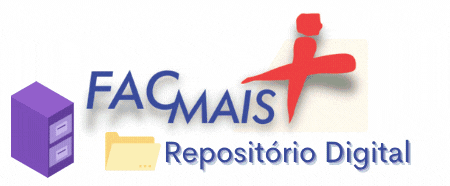Use este identificador para citar ou linkar para este item:
http://65.108.49.104:80/xmlui/handle/123456789/522| Tipo: | Dissertação |
| Título: | A INCLUSÃO NO CONTEXTO ESCOLAR: A ESCOLARIZAÇÃO DA PESSOA COM DEFICIÊNCIA COM FOCO NO ESTADO DE GOIÁS |
| Autor(es): | BORGES, Ana Maria Honorato |
| Primeiro Orientador: | MANZI FILHO, Ronaldo |
| Resumo: | Trata-se de um estudo teórico de cunho bibliográfico e documental vinculado à Linha de Pesquisa “Educação, Teorias e Processos Pedagógicos” e tem como tema a educação inclusiva que vem se efetivando no Brasil e, mais especificamente, no Estado de Goiás a partir do ano 2000. A proposta dessa pesquisa é participar do debate, já existente no meio científico, político e educacional, sobre a possibilidade da escolarização da pessoa com deficiência. Parte-se da hipótese de que esse sujeito se desenvolve e que o seu aprendizado poderá acontecer de acordo com suas potencialidades que estão em latência e que é possível se desenvolver. Sendo assim, o problema que norteia essa pesquisa parte do seguinte questionamento: é possível a escolarização da pessoa com deficiência, considerando a estrutura e organização do processo educativo no Brasil? Para responder a esse questionamento, objetivou-se identificar as relações entre a proposta de escola inclusiva pensada do ponto de vista legal, a visão de pensadores que se destacaram nas discussões sobre inclusão, apresentar aspectos legais da implantação e efetivação da inclusão no Estado de Goiás. De maneira específica, apresentamos aspectos da implantação da inclusão no Estado de Goiás; destacamos a concepção de inclusão a partir de estudiosos do assunto; e a partir daí, refletir sobre a escolarização da pessoa com deficiência, tendo como suporte teórico as proposições de Vygotsky. Como referencial teórico optou-se por estudiosos contemporâneos do campo da educação como Mantoan, Libâneo, Freire e Mittler, buscando argumentos para justificar a importância da inclusão escolar. Vygotsky foi à opção teórica elencada para refletir sobre a aprendizagem da pessoa com deficiência. O resultado nos mostra que a legislação por si só não é garantia de que a escolarização será satisfatória do ponto de vista de aquisição da aprendizagem necessária para o desempenho com autonomia. É preciso que haja uma mudança não só na infraestrutura e na condução pedagógica da inclusão, mas uma mudança na forma de se pensar a deficiência. |
| Abstract: | This is a theoretical study of a bibliographic and documentary nature linked to the Research Line "Education, Theories and Pedagogical Processes" and has as its theme the inclusive education that has been effective in Brazil and, more specifically, in the State of Goiás from of the year 2000. The purpose of this research is to participate in the debate, already existing in the scientific, political and educational environment, about the possibility of schooling for people with disabilities. It starts from the hypothesis that this subject develops and that his learning can happen according to his potentialities that are in latency and that it is possible to develop. Therefore, the problem that guides this research is based on the following question: is it possible for people with disabilities to be educated, considering the structure and organization of the educational process in Brazil? In order to answer this question, the objective was to identify the relationships between the proposal of an inclusive school conceived from a legal point of view, the vision of thinkers in the area, who stood out in the discussions on inclusion, to present legal aspects of the implementation and effectiveness of inclusion in the State of Goiás. In a specific way, we present aspects of the implementation of inclusion in the State of Goiás; we highlight the concept of inclusion from scholars on the subject; and from there, to reflect on the education of people with disabilities, having Vygotsky's propositions as theoretical support. As a theoretical reference, contemporary scholars in the field of education such as Mantoan, Libâneo, Freire and Mittler, were chosen, seeking arguments to justify the importance of school inclusion; and Vygotsky went to the theoretical option listed to reflect on the learning of people with disabilities. The result shows us that legislation alone is not a guarantee that schooling will be satisfactory from the point of view of acquiring the learning necessary for autonomous performance. There needs to be a change not only in the infrastructure and in the pedagogical conduct of inclusion, but a change in the way of thinking about disability. |
| Palavras-chave: | Inclusão Pessoa com Deficiência Escola |
| CNPq: | CNPQ::CIENCIAS HUMANAS::EDUCACAO |
| Idioma: | por |
| País: | Brasil |
| Editor: | Faculdade Facmais |
| Sigla da Instituição: | FACMAIS |
| metadata.dc.publisher.department: | Departamento 1 |
| metadata.dc.publisher.program: | PPG1 |
| Tipo de Acesso: | Acesso Aberto |
| URI: | http://65.108.49.104:80/xmlui/handle/123456789/522 |
| Data do documento: | 8-Mar-2022 |
| Aparece nas coleções: | Dissertações do Mestrado |
Arquivos associados a este item:
| Arquivo | Descrição | Tamanho | Formato | |
|---|---|---|---|---|
| ANA MARIA HONORATO BORGES.pdf | 1.11 MB | Adobe PDF | Visualizar/Abrir |
Os itens no repositório estão protegidos por copyright, com todos os direitos reservados, salvo quando é indicado o contrário.
